Performance and battery life
If by any chance that you can see the
silicon inside, you will now that the Beam does not intend to pleased high-end
users. It packs a NovaThor U8500 dual-core 1GHz (Cortex-A9 45nm, 32bit
processor) with 768MB Ram and GPU Mali-400. Samsung’s choice of processor here
causes much curiosity, because the NovaThor brand of ST-Ericsson is not famous
for high performance. Sony Xperia U and Xperia P both share the same chipset
but again, we did not think that performance was a priority of this company.
Everyone who is looking for a low-cost phone will be satisfied with it, but
experienced users will desire for some more powerful things. We also recommend that
you should not use the device when deciding to play a graphics-heavy game,
although the phone still completes its task well with normal games. Here are
the results:
Samsung
Galaxy Beam
·
Quadrant (v2.0): 2,764
·
Vellamo (v2.0): 680
·
AnTuTu: 5,250
·
SunSpider 0.9.1 (ms): 2,391
·
GLBenchmark 2.5 1080p Egypt Offscreen (fps): not
available
·
CF-Bench: 5.138
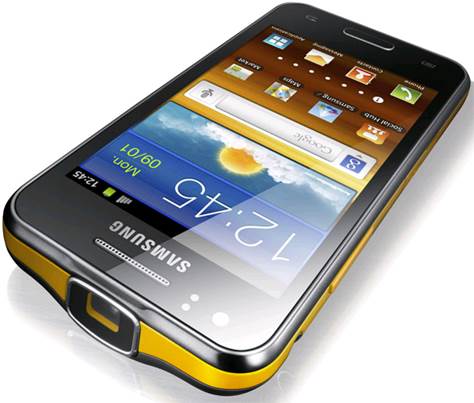
Samsung
Galaxy Beam
Sony
Xperia P
·
Quadrant (v2.0): 2,161
·
Vellamo (v2.0): N/A
·
AnTuTu: 4,965
·
SunSpider 0.9.1 (ms): 3,010
·
GLBenchmark 2.5 1080p Egypt Offscreen (fps): N/A
·
CF-Bench: 4,855
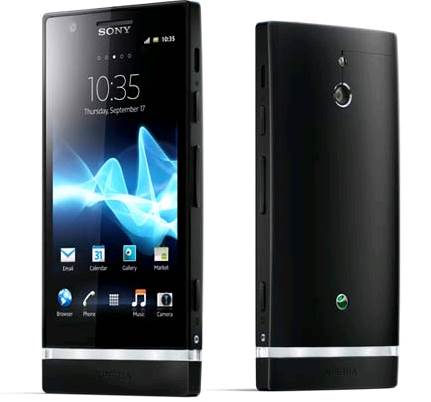
Sony
Xperia P
Sony
Xperia U
·
Quadrant (v2.0): 2,125
·
Vellamo (v2.0): N/A
·
AnTuTu: 5,348
·
SunSpider 0.9.1 (ms): 2,696
·
GLBenchmark 2.5 1080p Egypt Offscreen (fps): N/A
·
CF-Bench: 5,346
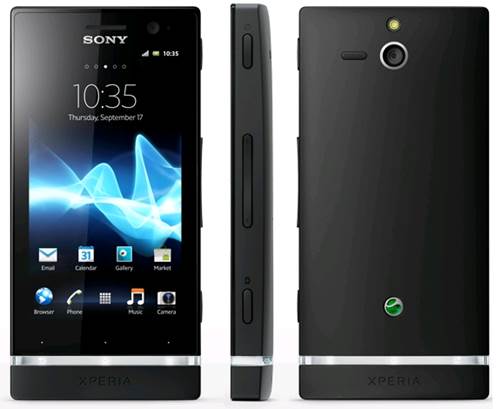
Sony
Xperia U
The removable 2000mAh battery of the Beam
performs very well. Our standard battery test, including video-looping with the
50%-bright level screen, brings the result of 9 hours and 30 minutes duration
before remaining 10% of battery (the video refused to play after that). In
practical use, we have 1.5 days when moderately used it. But how does it
perform when you use the projector? As you can expect, the battery life was hit
seriously, but it still managed to last 4 hours with the projector running. Besides,
we conducted a test with a similar slideshow which is circulated, so the
battery would be used up much more quickly if you used the projector to present
Netflix or running any similar graphics-heavy applications.
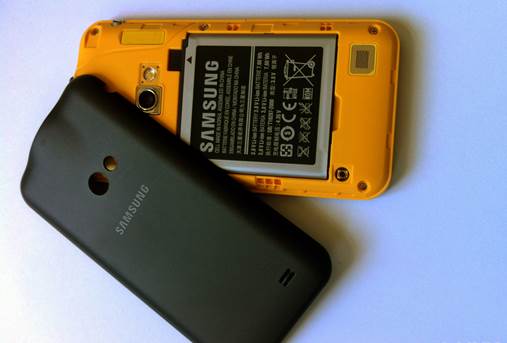
The
2000mAh battery
You will see the audio quality is above the
average on the Beam when listening to music or watching movies. Before
evaluating, one of the largest disappointments is how big the volume is when
watching multimedia via the projector (not everybody will gather around the
phone after all), but we can be confident to say the there is no notable
concern unless you are in a crowded room; the external speakers exceed our
expectation indeed, although the audio is not excellent with the plug-in
Klipsch Image S4A earphone. However, you will not get the dynamic audio range
and fullness of sound that you can in a luxury smartphone like Galaxy Note II –
the bass sounded muddy and the voices were like at a far distance.
While the Beam’s HSPA+ radio is just able
to reach the nominal limit of 14.4Mbps, it is really admirable according to its
constraints. Our unit, which provided the quad-band 3G (850/900/1900/2100) and
quad-band GSM/EDGE (850/900/1800/1900), usually could reach the average
download speed in the range of 6Mbps to 7Mbps. Unfortunately, it will not
access 3G in any AWS network. With loud and clear phone calls, we did not face
any problems communicating because the Beam’s reception seemed to be reliable
during the tests.
Pricing and availability
How much should the price of the phone
accompanied by a projector be, especially when the rest components do not draw
much attention? The Beam’s price varies in different markets, but at least in
England, it is available with 270 pounds ($430), while Galaxy S Advance is 250
pound ($400). It is also available in France, Singapore, India and Brazil.
American enthusiasts can also import the unlock models which is compatible 3G
with AT&T. Samsung is still courting other markets, so it is possible that
we will see the Beam widely available.
Conclusion
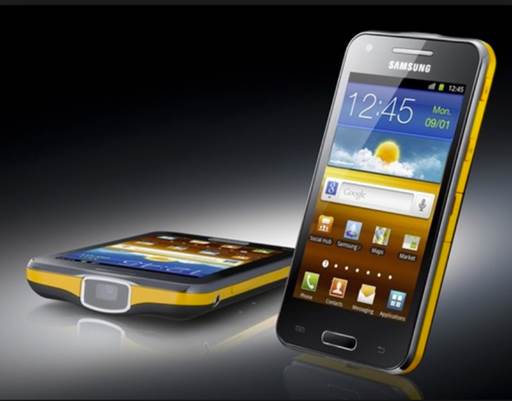
The
Samsung Galaxy Beam
Of course there are some excitements in
evaluating an abnormal device, but we still find it difficult to make the final
conclusion. Galaxy Beam does well in what it is claimed to be good (presenting
media), but in other aspects, it is mediocre. We did not say that it is a
terrible phone, but the features ranging from low to average turns it into a
hard-to-sell product with the price of $430, especially when you can spend the
same amount to have better devices. In this case, that means you must be fond
of the projector enough to excuse for the high price, or this feature should be
so essential for you work that you have to sacrifice other modern features to
have it.
The Beam plays a very interesting role as a
proof of concept, but we do not see it prospering into any other thing at the
present. We did not mean this over-specific category does not have a bright
future, but something unique like a projector will bring more success to a
premium phone: it need to combine with more senior phone without bargaining other
components, firmware or size. Only then it can exist as a universal device.
Until then, it is still an interesting device to blur your friend’s eyes, but
that is all it has.
|
Info
·
Price: $430
Advantages
·
The projector performs well
·
Excellent battery life
·
Solid and stable design
Disadvantages
·
Operating on outdated Android version
·
Low specifications which do not meet the
professional requirements
Verdicts
·
Unless you really need the Pico projector,
there is no reason to waste your money for such low-spec device while you
absolutely can spend that money on better place.
Samsung Galaxy
Beam specifications
·
Dimension: 124x64.2x12.5 mm
·
Weight: 145.3g
·
Display: TFT capacitive touchscreen, 16M
colors; 480x800 pixels, 4.0 inches; TouchWiz UI v4.0
·
Sound: Vibration; MP3, WAV ringtones
·
Network: HSPA 14.4/5.76 850/900/1900/1200;
EDGE/GPRS 850/900/1800/1900
·
Processor: 1GHz dual-core
·
Platform: Android Gingerbread 2.3
·
Camera: 5MP with flash + 1.3MP
·
Video: MPEG4, H.263, WMV, DivX;
recording/playback: 720p@30fps
·
Projector: 15 Lumen @ 1w, nHD resolution
(640x360); Ambience Mode; OHP mode
·
Sensor: Accelerometer, Digital Compass,
Proximity, Light Gyro
·
Memory: 6Gb RAM, 8GB iNAND (ROM + User
Memory); microSD (up to 32GB)
·
Battery: 2000mAh
|